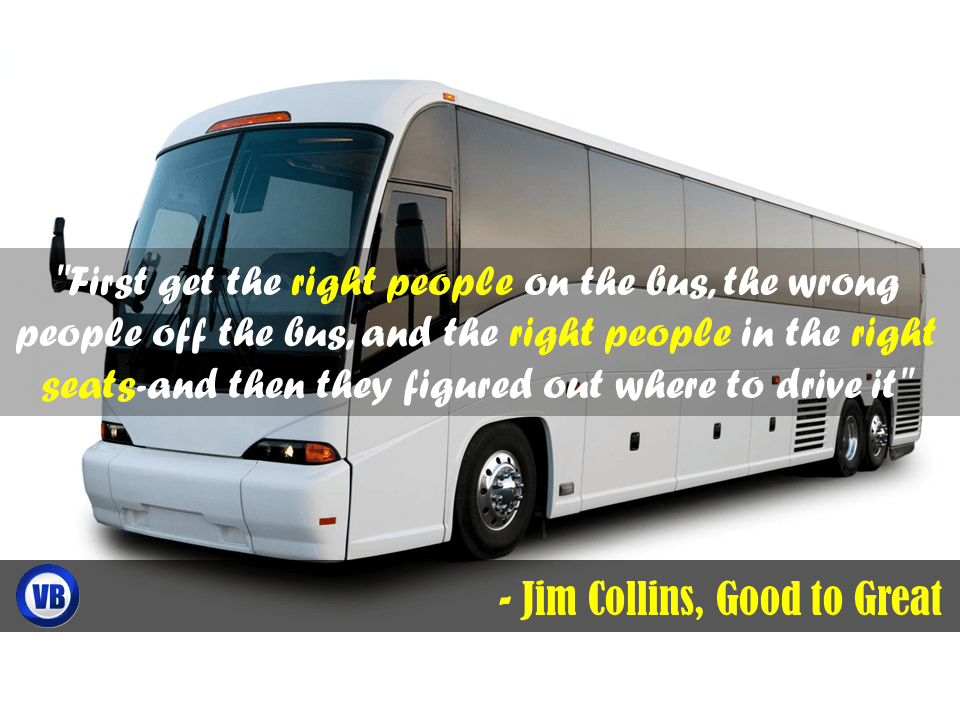Do You Have the Right People on Your Bus?

As Jim Collins says in his book, Good to Great, the first step in taking a company from good to great is “getting the right people on the bus and getting the wrong people off the bus.” Suppose you lead an organization that is doing okay just now, and you would like to up its game. In that case, the first step is to ensure that every member of the management team is energized by the thought of leaving the status quo behind and doing what it takes to reach new heights.
Yes, that means shaking things up a bit - or maybe even a lot! The current way of doing things is getting okay results. It will take creative thinking, innovative methods, and lots of hard work to break free of existing norms and achieve a greater good. As we enter 2021, most organizations are seeking a breakthrough. This will require a change in staff or a change in the commitment and contributions of current staff.
How can you tell which team members are the right people to move the organization forward or the wrong people to stay on board? Let’s look at three of the factors to consider: personal values, passion, and adaptability.
First, ask those currently on the management team and those who might join the team soon to share their top five personal values. How well do these values align with the organization’s values and the expectations required of management team members during the intended transformation period? Ask the candidates to explain how their values will help them lead organizational repositioning or how they might limit their involvement.
Someone who values family positively may say that he reserves all day Sunday for family time to build strong relationships, create memories, and recharge. He needs to be home for dinner at least two weekdays but has flexibility the other evenings. His insistence on a family day every week may reduce his chances of burning out, and the ability to work late some days enables him to handle a heavier workload.
Another candidate might say that because she highly values family, she coaches the travel soccer teams of both her children year-round. As a result, she will be unavailable after 5:00 pm almost every weekday and most Saturdays and Sundays. This candidate contributes significantly to the community by helping her children and others build strong bodies, discipline, and team spirit. However, it may not be possible for her to devote the necessary extra time and energy required of transformational management team members.
Second, ask management team candidates to explain why the organization exists, why they work for the organization, and why they would like to be on the management team going forward. Those who understand the organization’s purpose and are passionate about it will be the most invested in leading it from good to great!
Third, ask them how they feel about stability, predictability, and change. Ask them to share a time when circumstances changed around them and how they responded. Those who will lead your new initiatives must show their ability to adapt and enjoy overcoming challenges. Adaptability is likely the most essential skill for individuals and organizations positioned for success this year and in the years ahead.
Some organizations embrace this time of challenge and uncertainty as a time to transform their focus, strategies, and culture. Those who move forward intentionally with the right people on the bus are the most likely to be serving their customers and their communities well in the years to come.
What is the next step you will take to be surrounded by the right people to create great success for your organization in 2021 and beyond?
I’m available to help you move forward. Please contact me if you would like a free consultation to help you define your next steps.

